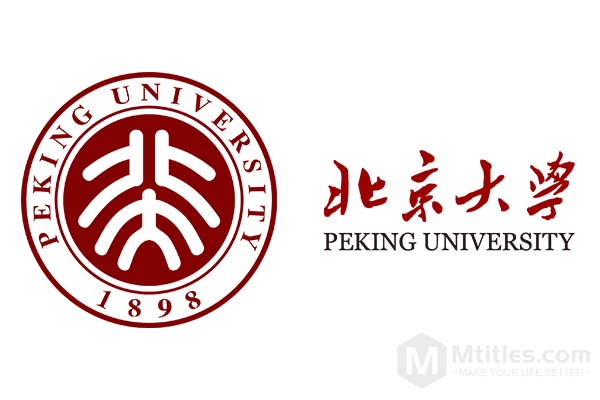Mutual Funds 101 (4)

face a challenge
More and more challenges
Mutual funds, because of their professional management, diversification of investments, full liquidity, availability of information, wide choice of instruments, and The combined advantages of high convenience and relatively low cost are making it an attractive option for the average investor to participate in the securities market, build wealth and achieve long-term success. The most important tool for financial objectives. As a result, the global mutual funds have grown steadily over the past few years, with the total size of assets under management increasing from 0.5 per cent in 2000 to 0.5 per cent in 2007. $11.9 trillion to $16.2 trillion in 2004, an average annual growth rate of 8 per cent; the number of funds increased from $11.9 trillion in 2000 to $16.2 trillion in 2004, an average annual growth rate of 8 per cent. The number of mutual funds increased from 52,000 to 56,000 in 2004, an average annual net increase of 960.
Overall, the role of mutual funds in capital formation, economic development and social welfare has been increasing. However, with the changes in national financial systems, the adjustment of regulatory rules and the intensification of market competition, the development of global mutual funds has faced A Growing Challenge.
Fund governance issues
Because the mutual fund industry is based on a fiduciary relationship between fund managers and fund holders, governance issues are critical. With the rapid growth in asset size, two major governance issues have become increasingly prominent in mutual funds: first, the lack of understanding of boards of directors by fund holders. As a result, the interests of fundholders are not effectively protected. The mutual fund system of the United States model emphasizes the self-determination of fundholders and the role of the board of directors, but in reality, fundholders have no control over the The fund manager and the fund family are relatively familiar with each other and little is known about the board, particularly the independent directors. The lack of communication with the board of directors prevents fundholders from monitoring the conduct of the directors, and thus when the interests of fundholders and the investment adviser are not aligned When, the independent directors may fall to the side of the investment adviser, to the detriment of fundholders. Second, shareholders are indifferent to controlling costs and expenses. In recent years, as investors' enthusiasm for investing in mutual funds has increased, fund managers in various countries have been aiming at expanding the size of their AUM. easy to achieve. Against this background, shareholders are less concerned about the fund's costs and expenses. Partly because the expense ratio is relatively low, and partly because of the fund's publicity, investors believe that the successful operation of the fund manager worth the expense. This perception leads to a fund's expense ratio that seems reasonable but is actually high in absolute terms.
The problem of effective evolution of fund ecology
To a certain extent, the problem of fund ecology is also a problem of fund development models. At present, there are three types of fund ecology in the world: first, a fund ecology based on the rule of law, as represented by the United States; second, a fund ecology based on autonomy, as represented by the United Kingdom; and third, a fund ecology based on the rule of law, as represented by the United States. fund ecology; and third, the political fund ecology represented by Japan. In the rule of law fund ecology, there is sufficient competition in the market, fund products are constantly innovating, and funds are under uniform legal constraints and in a level playing field. The disadvantage of this is that it is too volatile. In the ecology of self-governed funds, the market subjects focus on giving full play to the self-discipline function of the fund industry in order to maintain the long-term coordination of the fund industry. The disadvantage of steady growth is that it is not conducive to the formation of uniform legal norms. The political fund ecosystem focuses on the extraordinary growth of the fund industry with the strong push of the government, which has the disadvantage of no competition in the market. Insufficient innovation in fund products can breed corruption and shady practices. Overall, each of the three fund ecosystems has its own advantages and disadvantages, but the key question is how to structure liberal conditions to take full advantage of the fund ecosystem. Self-evolving capacity to improve the efficiency of the Fund's operations. The discussion on this is still inconclusive.
Equity in fund marketing
Fund managers are increasingly relying on banks, brokers, financial advisers, and other intermediaries to sell their funds, and fund investors are increasingly Rely on their help and advice to buy funds. However, for a long time, various inequities in fund marketing have affected investors' incentives to buy funds. First, there is the problem of double standards in the fees charged for purchasing funds. Individual investors and institutional investors have always purchased the same product at different prices when buying funds, and individual investors are charged more than institutional investors. Investors pay more fees. Usually, in order to expand the size of the fund's assets, whether during the offering period or the open period, the fund company will pay more fees to institutional investors. Commissions are reduced or waived, and even a certain number of fund shares are given away and internal agreements are made to carry out illegal transactions. Second, investors are required to pay additional investment fees due to the unfair practice of brokers receiving grey remuneration. Research shows that brokers receive two types of implicit compensation in addition to the fixed fees charged to fund managers for fund sales services. One is sales incentives in the general sense, and the other is "soft commissions", or additional subsidies, such as when the fund is requested by the broker. Increasing the power of mouth to trade on their seats. Regardless of the gray payoff, the final bearer is the average fund investor, as they often unknowingly go along with the The broker's referral selection is not ideal for the fund variety, which ultimately affects your investment returns.
Information Disclosure Issues
Information disclosure is a long-standing issue that goes hand in hand with the development of the fund industry. In the United States, there has been growing concern about fund disclosure, especially since the "fund sham" in the United States in 2003. Regulators have also adopted stricter regulatory measures as a result. Under the SEC's new rules, fund companies are obligated to disclose the advisory contracts approved, the timing of the trades taken and the Policies on deferred trading, sales discounts, background and salary policies of fund managers, and salary structures of brokers and distribution personnel. . In Europe, the EU has introduced regulations that include disclosure and other investor protections, expanding on disclosure requirements such as fund managers' Periodic reports to the competent authorities, providing additional information on investment strategies, techniques and restrictions, with additional... risk management information, etc. As disclosure requirements increase, how effectively funds can control disclosure costs and how regulators can monitor the information disclosed by the fund Compliance with regulatory requirements, and how quickly investors can access and effectively interpret the geometrically increasing volume of information, will be a new challenge. Challenges.
There are certainly more realistic challenges than those listed above, but these four challenges are fundamental and decisive. Global mutual funds are at an important juncture in their development, and the key to healthy and sustainable development of national mutual funds is the ability to adopt effective The measures focus on the above four areas and are timely in seizing the important opportunities that have emerged.







